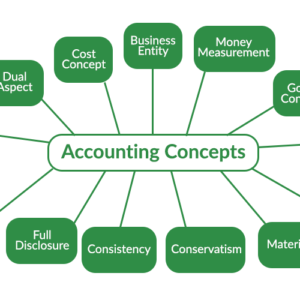Introduction
Massachusetts divorce law child custody provisions play a crucial role in ensuring the well-being of children during and after divorce proceedings. With an emphasis on the best interests of the child, these provisions aim to establish fair and effective arrangements for child custody. This article explores the key aspects of Massachusetts divorce law child custody provisions, shedding light on the rights and responsibilities of parents and the factors considered by the courts. By understanding these provisions, individuals involved in a divorce can navigate the complexities of child custody with confidence, ultimately prioritizing the welfare of their children.
Table of Contents
Legal Framework for Child Custody
Massachusetts divorce law child custody provisions are founded on a legal framework that recognizes the importance of parental rights and the best interests of the child. When determining child custody, the courts consider the Massachusetts General Laws, particularly Chapter 208, Section 31. This statute guides judges in making custody decisions based on the child’s welfare.
Types of Custody Arrangements
Under Massachusetts divorce law child custody provisions, various types of custody arrangements are available to accommodate the unique needs of families. The two primary categories are physical custody and legal custody.
Physical Custody
Physical custody refers to where the child resides primarily. Massachusetts divorce law child custody provisions encourage shared physical custody whenever possible, promoting frequent and meaningful contact with both parents. This arrangement can contribute to the child’s emotional well-being and maintain a sense of stability.
Legal Custody
Legal custody pertains to decision-making authority regarding the child’s upbringing, including education, healthcare, and religious matters. Massachusetts divorce law child custody provisions generally favor joint legal custody, allowing both parents to actively participate in important decisions that impact the child’s life.
Factors Considered in Custody Determination
When determining child custody, Massachusetts divorce law considers a range of factors, with the primary focus on the best interests of the child. Some of the factors commonly evaluated by the courts include:
Parent-Child Relationship
Massachusetts divorce law child custody provisions prioritize the child’s relationship with each parent. The courts assess the quality of the parent-child bond, considering factors such as the child’s emotional attachment, stability, and support provided by each parent.
Parental Fitness
Another essential factor in custody determinations is the parental fitness of each party. Massachusetts divorce law child custody provisions evaluate the physical and mental health of the parents, as well as their ability to meet the child’s needs and provide a safe and nurturing environment.
Child’s Preference
In some cases, the court may consider the child’s preference when making custody decisions, particularly for older children. Massachusetts divorce law child custody provisions acknowledge the evolving maturity of children and their ability to express their preferences.
Domestic Violence and Abuse
Instances of domestic violence or abuse have a significant impact on child custody decisions. Massachusetts divorce law child custody provisions prioritize the safety and well-being of the child, taking into account any history of violence or potential harm.
Modifications and Enforcement of Custody Orders
Massachusetts divorce law child custody provisions recognize that circumstances may change over time. To accommodate these changes, provisions for modifying custody orders exist, allowing parents to request adjustments if there is a substantial change in circumstances. Additionally, the law provides mechanisms for enforcing custody orders when one parent fails to comply.
Discover the intricacies of Massachusetts divorce law child custody provisions, delving into the different types of arrangements available, the factors that are considered by the courts, and the overarching goal of prioritizing the best interests of the child. By understanding these provisions, individuals navigating the complexities of divorce can ensure the welfare and well-being of their children remain at the forefront of decision-making processes.
Massachusetts divorce law child custody provisions are designed to safeguard the welfare of children amidst the challenges of divorce. By exploring the various custody arrangements, such as physical and legal custody, and understanding the factors considered by the courts, parents can make informed decisions that prioritize the best interests of their children. These provisions serve as a guiding framework to ensure a fair and nurturing environment for children during and after divorce proceedings, fostering their emotional well-being and stability.
Conclusion
Massachusetts divorce law child custody provisions aim to protect the best interests of children by establishing fair and effective arrangements for custody. By considering factors such as the parent-child relationship, parental fitness, and the child’s preferences, the courts strive to create custody orders that support the child’s well-being and development. It is crucial for individuals going through a divorce in Massachusetts to understand these provisions and seek legal advice to navigate the custody process successfully. By prioritizing the best interests of the child and adhering to Massachusetts divorce law child custody provisions, parents can ensure a smoother transition and provide a stable and nurturing environment for their children post-divorce.
Learn about:
Stay informed and understand the impact of the new immigration law Obama administration the shaping the future of immigration policies.





